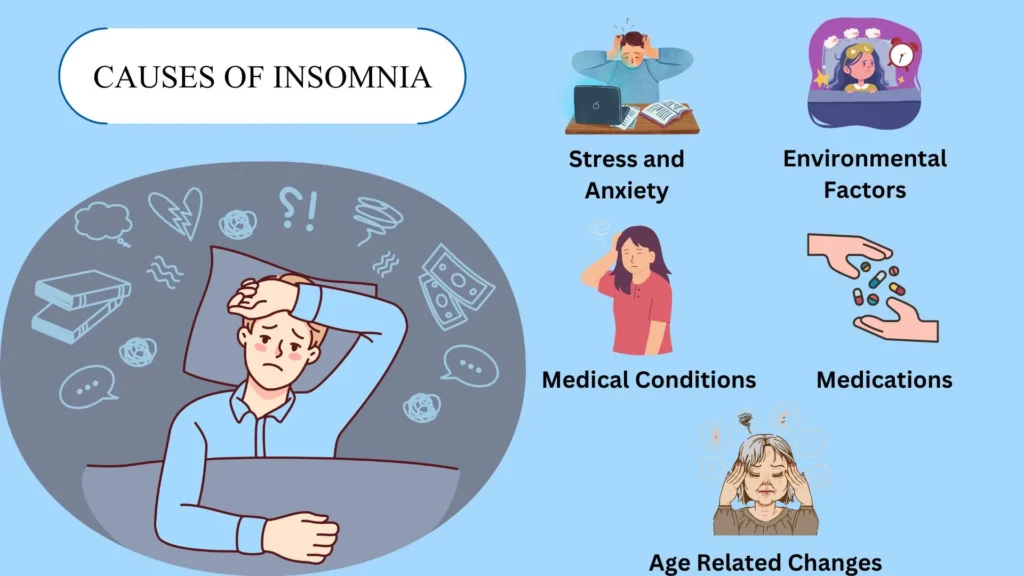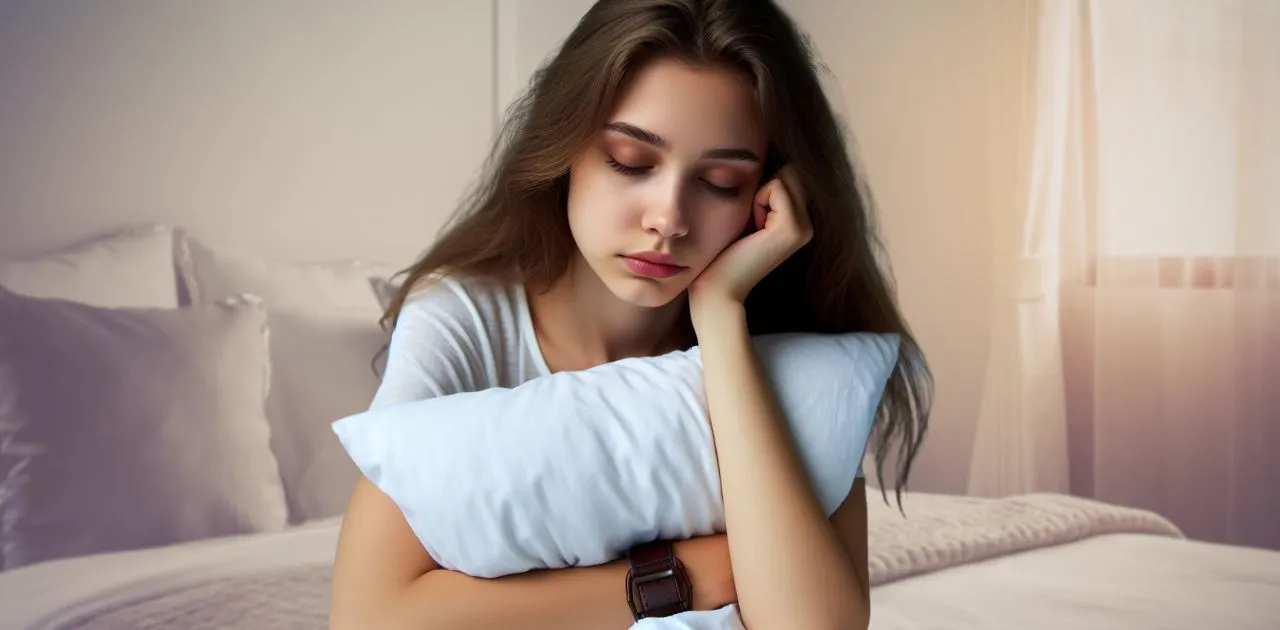While writing and finding an appropriate answer to the question, “Can medieval sleeping habits fix America’s Insomnia?” I was compelled to write about the present situation at first. As you know, in today’s world, where we have comfortable beds and cozy rooms with just the right temperature, you’d think everyone would sleep like a baby.
But that’s only sometimes the case. Even with all these comforts, some people still toss and turn all night, as opposed to medieval sleeping habits. Fixing America’s insomnia with medieval sleeping habits is a challenge for all of us, but it’s a journey worth embarking on.
Well, stress from work or other stuff, problems in society, and even our bodies natural rhythms can all mess with our sleep. So, despite our fancy beds and nice houses, getting a good night’s rest can still be a struggle for many.
It is essential to discuss the sleep issue in America in detail. So, let’s understand it by placing the issue in the historical context of sleep in the Middle Ages.
Table of Contents
Critical Comparison between Medieval and Modern Period
Before answering the statement in question, it is essential to get an idea of medieval and modern times. The period from the 5th to the 15th century in Europe is generally known as the medieval period. On the other hand, the period from the 16th century to the present day is called the modern period.
Medieval times were pretty basic compared to today. They also had some of the cool gadgets and scientific smarts we do now. However, significant changes occurred in the late 15th century with the industrial and scientific revolutions.
On the one hand, this modern era brought tons of comforts and conveniences, lighting up the world like a torch in the darkness. But on the other hand, it also had its fair share of problems. The Industrial Revolution, for example, caused a bunch of issues. It messed with people’s health, both physically and mentally, and made them more closed-off and less social. So, while modern life has its benefits, it also has its challenges.
One such effect of the large amount of scientific and technological discoveries is insomnia, especially in America. As Americans are more hardworking and expert in discoveries so due to their involvement in technological discoveries caused them to sleep less or not at all. So, modernity made them insomniacs, which led to changing medieval sleep habits.
What is Insomnia?
The inability to sleep or when you are unable to sleep as you should; this condition is known as insomnia. It is often caused by stress, anxiety, and mental and medical problems. It is a common issue in American society.
An insomniac person is often unable to fall asleep or stay asleep. He faces immense irregularity in his sleep pattern.
What are the Causes of Insomnia?
Various causes of insomnia exist, and they are usually interconnected and interdependent. By removing these causes from your routine, you can adopt medieval sleeping habits to fix America’s insomnia.
Some of the major causes are given below.

1. Stress and Anxiety
One of the most common and significant causes of insomnia is anxiety and stress. People often cannot absorb pressure and workload. As a result, they get stressed and pressurized. The worries about finances, work, relationships, society, and people do not allow the mind to stay relaxed but keep it racing.
This type of racing and stress makes it difficult to stay asleep and get relaxed. Hence, it leads to insomnia or the loss of sleep. Find the best non-habit-forming medication to help you cope with stress and anxiety.
2. Medical Conditions
Certain medical and mental conditions do not usually allow sleep. Any medical issue in the body becomes a cause of stress and anxiety. Most of the time, people who have some critical diseases have less or no sleep.
Conditions like depression pos, post-traumatic stress disorder, and anxiety disorder can disrupt sleep patterns. These conditions accelerate restlessness in people. Similarly, medical conditions like respiratory diseases such as asthma, neurological problems such as Parkinson’s disease, and gastrointestinal issues like acid reflux can deprive people of sleep.
3. Medications
Different types of medicines are also common causes of insomnia. Antidepressants, medicines for asthma and high blood pressure, and corticosteroids can disrupt sleep patterns.
4. Environmental Factors
Environmental factors such as lighting, noise, dirty place, temperature, and uncomfortable bed, mattress, or pillow can contribute to insomnia. Minimizing the effect of these factors can lead to insomnia and improve sleep habits. You can learn more about the essential migraine-improved sleep habits.
5. Age-Related Changes
Sometimes, insomnia is also a result of age. Older adults may experience changes in sleep patterns. They may have difficulty falling asleep, staying asleep, or experiencing deep and relaxing sleep due to hormonal changes, medical conditions, etc.
Medieval Sleeping Habits
Thompson is a historian and sleep researcher who studies the sleep patterns of medieval Europe. According to him, hundreds of years ago, people in Europe slept in segments. Medieval Europe had a segmented sleep history, as people used to sleep for some time and then wake up at midnight.
They used to sleep in two chunks, as opposed to the modern practice of one long snooze or eight to ten hours of sleep. This type of segmented sleep is known as biphasic sleep. They would fall asleep around nightfall and then wake up at midnight.
Between the two chunks of sleep, people practiced some stress-free activities. They may engage in chat by the fire, work for a few hours, or have sex with their partners. This was the common way of sleeping in the Middle Ages.
There are also other names for this type of segmented sleep, such as first sleep and second sleep. The sleep in the first part of the night is called first sleep. It begins in the early evening, around 7 or 8 p.m. The sleep in the second part, or after some stress-free activities, is called second sleep. It occurs near morning.
In simple terms, if someone wants to know about medieval sleep habits, it was basically a combination of first and second sleep. This type of sleep is segmented or divided as opposed to modern sleep habits.
Can Medieval Sleeping Habits Fix America’s Insomnia?
What do you think is the best strategy to improve sleep habits? Can medieval sleep habits help you sleep well? There are different opinions about these questions. Some scholars view medieval sleep habits as essential for a good sleep pattern. At the same time, others stress personal needs and methods more.
For example, various essays in the Guardian promote the adoption of medieval habits to overcome sleep shortages. These essays argue that biphasic sleep is more in accordance with circadian rhythms. Medieval sleep habits make one more productive because it is the quietest time to rest.
Other sources, such as CNN, The New York Times, and The New York Times Magazine, also support this argument that medieval sleep can solve the chronic sleep shortage.
On the contrary, scholars like Derek Thompson and Roger Ekirch support the idea that only medieval sleep habits can solve insomnia. According to Thompson, getting seven hours of consecutive sleep is not a historical norm. A person can also fix insomnia through other strategies.
Thompson argues that the human body is flexible. He insists on individual preferences and strategy. Any single strategy can work to break sleep insomnia and get the right amount of sleep. As long as there is a routine behind every strategy, it can work better. You can fix insomnia through any method or habit other than medieval sleep habits.
Both types of views are scholarly and valid. Those who believe medieval sleep habits can fix America’s insomnia suggest that modernity changed everything, even sleep habits, especially the discovery of light by Addison.
In today’s world, most people sleep for less than 7-8 hours straight each night. However, some studies show that it is more natural for humans to sleep in two separate chunks of time during the night. Modern society is monophasic in sleep, but biphasic or segmented sleep habits are more natural and suitable nowadays.
Why is it Important to Fix America’s Insomnia?
Sleep is the most critical component of a healthy lifestyle. It is one of the best habits to adopt for a better life.
Modern life in America is witnessing a decrease in the amount of sleep required for a normal human being. The situation is very alarming because about 70 million or so Americans have insomnia and other sleep disorders. Such a shortage is causing different problems, such as abnormal daily routines, stress, pressure, medical conditions, and a disruption in relationships.
It is, therefore, highly important to fix America’s insomnia. The above section explains how to cope with this problem. Now, it is high time to resolve the issue and live a healthy life.
Sleep is the source of a happy and satisfactory life for all people. Adequate sleep is one of the healthy habits for the student. It is more important for students and young adults to live a healthy life. Sleep helps your body get the fuel required for work and daily activities.
Conclusion
The overarching problem of sleep deficiency in America is a major concern for all scholars today. They are continuously searching for a solution to fix America’s insomnia. The best possible solution until now is to adopt medieval sleep habits and devise a strategy.
FAQs
What is the norm in the modern-day sleep pattern?
The modern sleep habit is monophasic rather than segmented. It involves one-time sleep of 7 to 8 hours at night. This avoids a break during sleep time and then forces people to work for long hours.
What is the benefit of medieval sleep habits?
Medieval sleep habits sharpen the mind. It involves working during the most quiet time, which is midnight. It increases productivity and reduces stress and burden.




